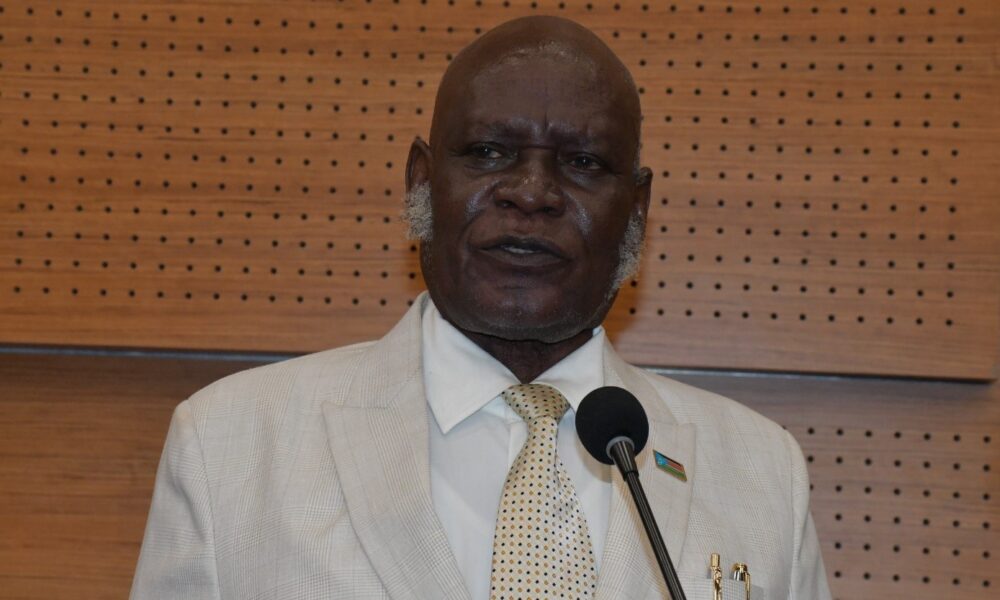By Philip Buda Ladu
Transitional National Legislative Assembly (TNLA) whose scheduled recess was denied due to a backlog of critical bills is slowly returning to regular business, with the August House expected to resume its second session on Wednesday.
Last week, the Speaker of the TNLA, Rt. Hon. Jemma Nunu Kumba said President Salva Kiir Mayardit had ordered the parliament to continue its second sitting session, suspending their usual three-month recess period.
Nunu received the directive last Friday after she had submitted four important bills, including the amended National Security Service Act 2014, for the President’s assent.
She had consulted the President on the issue of the parliamentary recess as dictated by the law, but her request was denied.
According to the TNLA’s rules of procedure, the national assembly was originally scheduled to take a three-month recess on June 30, 2024, after completing its first session.
However, the President has directed the lawmakers to forgo their break and continue sitting through the second session, as they have a significant amount of important work that does not allow them to go on recess.
Oliver Mori Benjamin, the spokesperson of the TNLA, told No. 1 Citizen Daily Newspaper in an exclusive interview yesterday that the house will now convene for a plenary sitting today (Wednesday) after two days off.
He said the parliament is committed to fulfilling its legislative duties despite the disruption to its scheduled recess period.
The national parliament normally has ordinary sittings every Monday to Wednesday and sometimes convenes for an extraordinary session on Thursday and Friday if a crucial urgent matter of public importance arises.
The Assembly spokesman highlighted numerous crucial bills—a minimum of six that are necessary for the implementation of the revitalized peace agreement.
Some of these bills being worked on by parliament’s specialized committees include the anti-money laundering bill with the Committee for Security and Public Order, the National Bureau of Statistics bill, and the Public Procurement and Asset Disposal Bill 2024.
Fiscal allocation, humanitarian response preparedness, and public financial management and accountability bills 2024 are others. These, among others, are the bills that deal with the reform agenda as stipulated in the revitalized agreement.
When asked why parliament has not sat for the last two days, spokesperson Mori said they have six bills that were with the committees but are not yet finalized.
Mr. Mori explained that bills are always passed to the committee, and when they finish with their scrutiny work.
“If the committee has not finished the work on those particular bills given to them, nothing can happen because these are legal things that have to be done perfectly well with the consultation of the legal affairs and justice committee in parliament because it’s going to be law for the country,” Mori clarified.
According to him, some of the ready bills expected for deliberation today are the Public Financial Management and Accountability Bill 2024, which was retracted for some corrections, and the Anti-money Laundering Bill, to mention but a few.
Formulation of laws always takes a long time, starting with a ministry drafting a policy framework and submitting it to a cluster, be it economic, service, or governance.
The memo is then presented to the council of ministers, after which, when approved, the concerned minister tables it before parliament, and then the speaker commits the bill to a standing specialized committee for scrutiny before it is presented back to the assembly plenary for deliberation and enactment, which takes four reading stages.




